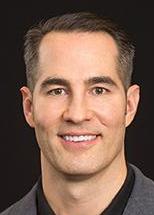Plus: The treatment experience for Blacks, and why veterans are less inclined to seek care for mental health and substance problems
By William Wagner
In a unique new study, researchers from the University of Michigan have determined that high school students who play sports are more likely to misuse prescription stimulants in the decade following their graduation.
We also focus this week on the experiences of Blacks in addiction treatment, and the reluctance of veterans to seek help for mental health and substance issues.
From the American Journal of Epidemiology:
The Link Between Prep Sports and Stimulant Misuse
It’s believed to be the first study of its kind, and the results are as strange as they are disconcerting: People who play sports in high school are more likely than non-athletes to misuse prescription stimulants in their 20s. This is particularly true for students who play contact sports such as football, ice hockey, lacrosse and wrestling; they’re 50% more likely to later dive into prescription stimulants, according to the University of Michigan study.

The researchers gathered data from 4,772 U.S. high school seniors between 2006 and 2017 from the Monitoring the Future study. Eleven percent of the respondents who played contact sports said they had misused prescription stimulants in the previous year; by ages 21 and 22, that number had risen to 18%.
The question is, why athletes? To that, the study offers no conclusive answers. But after analyzing the data, Sean Esteban McCabe, PhD, director of the Center for the Study of Drugs, Alcohol, Smoking and Health at U-M and senior author of the study, knows at least this much: “Increased prescription stimulant misuse following high school warrants ongoing monitoring during young adulthood, especially among athletes.”
From the Journal of Substance Abuse Treatment:
The Experiences of Blacks in Treatment
The Black experience in addiction treatment is an area that, unfortunately, has received relatively little attention from academics. That’s partially why a study out of the University of Kentucky is so important. It’s giving Black adults an opportunity to share their thoughts on their treatment for opioid misuse. Thirty-nine Black men and women initially were interviewed, but the study, funded by the National Institute on Drug Abuse (NIDA), is ongoing and eventually will include 800 participants.
“The men and women in our study reported less success in their experiences with treatment when it was mandated, versus something they sought out because they wanted it for themselves.”
—Candice Hargons, University of Kentucky
So far, the study has uncovered three main themes:
- Readiness for change. “The men and women in our study reported less success in their experiences with treatment when it was mandated, versus something they sought out because they wanted it for themselves,” says Candice Hargons, PhD, a co-author of the study.
- Provider characteristics. “There is a great need to recruit more Black therapists,” says Natalie Malone, PhD, a co-author “Many of the participants in this study had never or rarely encountered a provider of color. Several talked about needing to feel the therapist will understand them when talking about experiences of racism, discrimination and microaggressions.”
- Relational support. “Individuals desired supportive relationships with peers, family, and/or partners to improve treatment experiences,” the study states.
From Psychology of Addictive Behaviors:
Veterans Are Reluctant to Seek Treatment
A study from the University of Missouri found that military veterans are reluctant to seek care for mental health and substance issues, including alcohol use disorder (AUD), substance use disorder (SUD) post-traumatic stress disorder (PTSD), anxiety, depression and insomnia. They are more willing to get help for physical ailments such as chronic pain.

“The majority of participants indicated they would be willing to seek treatment for both physical and mental health problems. However, they reported significantly greater willingness to seek treatment for physical than mental health conditions,” says principal investigator Mary Beth Miller, PhD.
The reason? “We speculate that because sleep and alcohol problems are common [among veterans], they may be normalized or minimized to the extent that they are no longer viewed as problems—or at least problems that warrant treatment,” Miller says.
The researchers screened 334 veterans from 46 states. Sixty-six percent of the participants were men, and approximately 70% were persons of color.
Top photo: Leah Hatteberg












